'Downfall: The Case Against Boeing' Brings All of Us Down With Boeing
Published Feb. 17 2022, 3:47 p.m. ET
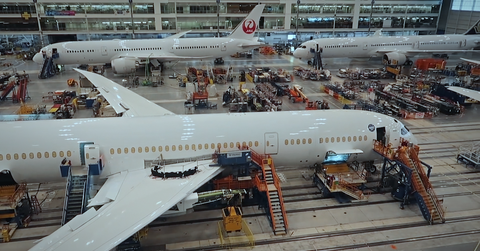
Remember when we were all terrified of getting on an airplane thanks to two crashes that happened within five months of each other in 2018 and 2019? This was in the BC era, of course: “Before COVID.” Less than a year later, our fear of flying would revolve around a less visible threat. But before the COVID-19 pandemic, the Boeing 737-Max crashes took the world by storm.
If it was at all possible, the new Netflix documentary Downfall: The Case Against Boeing makes us even more afraid to fly … again. There’s barely any five-minute segment in the entire film without some sort of flight crash reenactment — replaying the trauma again and again.
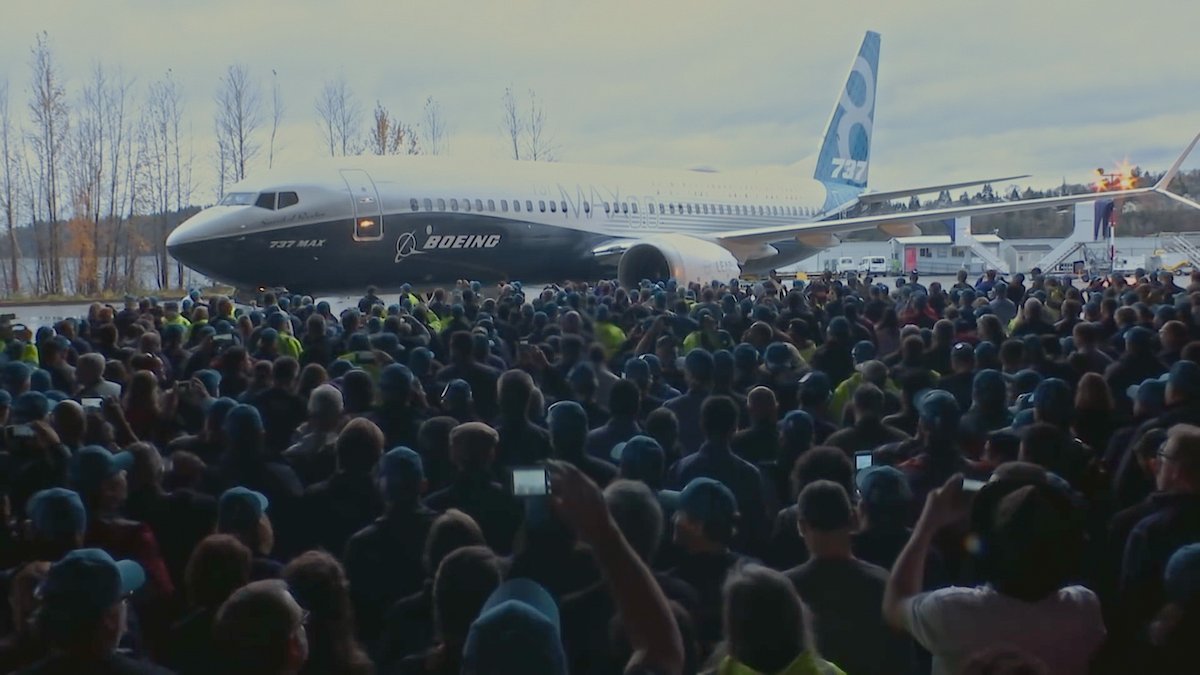
Whose fault were these crashes? Why didn’t Boeing or the Federal Aviation Agency (FAA) do anything to stop a second plane from crashing? Were there any consequences for those that were responsible?
Downfall: The Case Against Boeing answers these questions, but maybe not in the way we’d like. The film provides presumable explanations while fixating on known information for shock value. Documentaries are supposed to entertain by educating, but this one has nothing to teach.
'Downfall: The Case Against Boeing'
Our Rating
This documentary stresses the emotional loss of the two Boeing crashes, but it fails to uncover any new information. It merely stresses the often inhuman pitfalls of capitalism.
Netflix Premiere: Feb. 18, 2022
Director: Rory Kennedy
Writers: Mark Bailey and Keven McAlester
Run time: 89 minutes
Downfall: The Case Against Boeing is not the true-crime documentary it markets itself to be. Rather, it plays like a disjointed yet tragic memoir of those who lost their family members in the infamous crashes.
It traces the damage Boeing inflicted and reiterates how fatal capitalism can be. If you were looking for a scathing exposé uncovering new secrets behind what really happened, prepare to be disappointed.
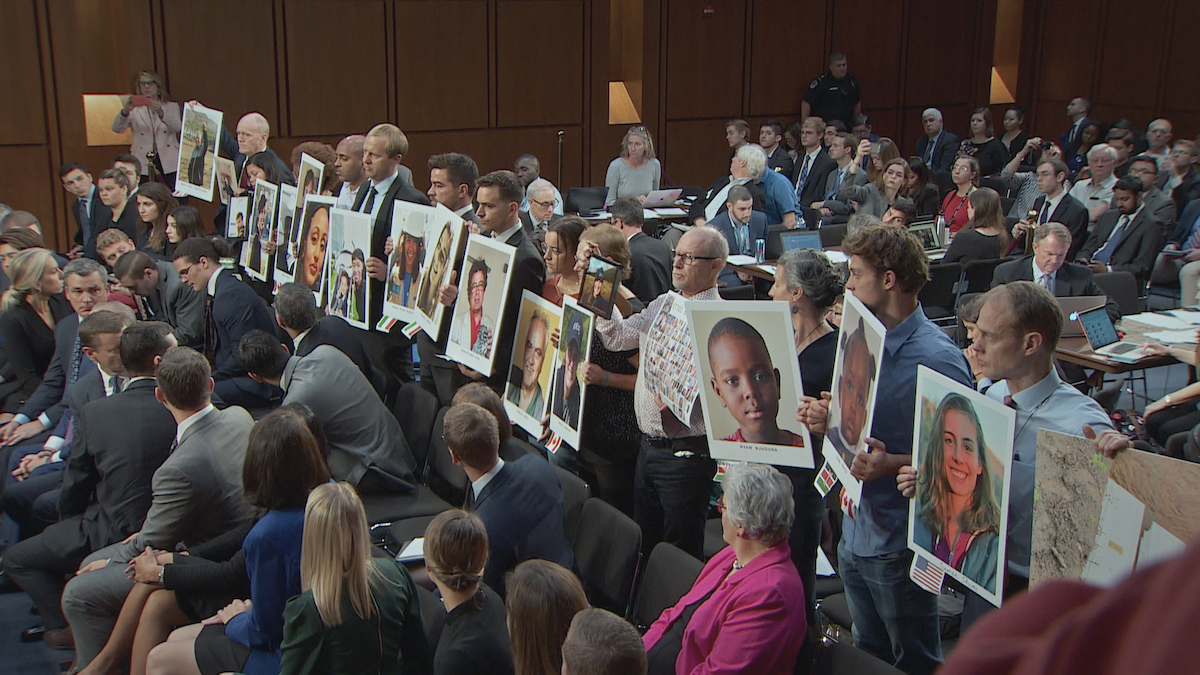
Sure, we learn about the corrupt culture that Boeing built since it merged with McDonnell Douglas in 1997. And the failed technology that caused both plane crashes is reviewed more than enough times in simple words and CGI animation. However, there is no previously undisclosed information. No interviews that shed new light on what really happened.
In 2019, The New York Times did an exposé reported through multiple episodes of their popular podcast, The Daily, as well as through exclusive articles. This covered everything shown in Downfall: The Case Against Boeing and more.
One of the most memorable quotes about the crashes came from a Boeing whistleblower named “Swampy.” Reporter Natalie Kitroeff asks him, “Would you fly on a 787 Dreamliner out of Charleston?” Swampy responds, “No, ma’am. You couldn’t pay me.”
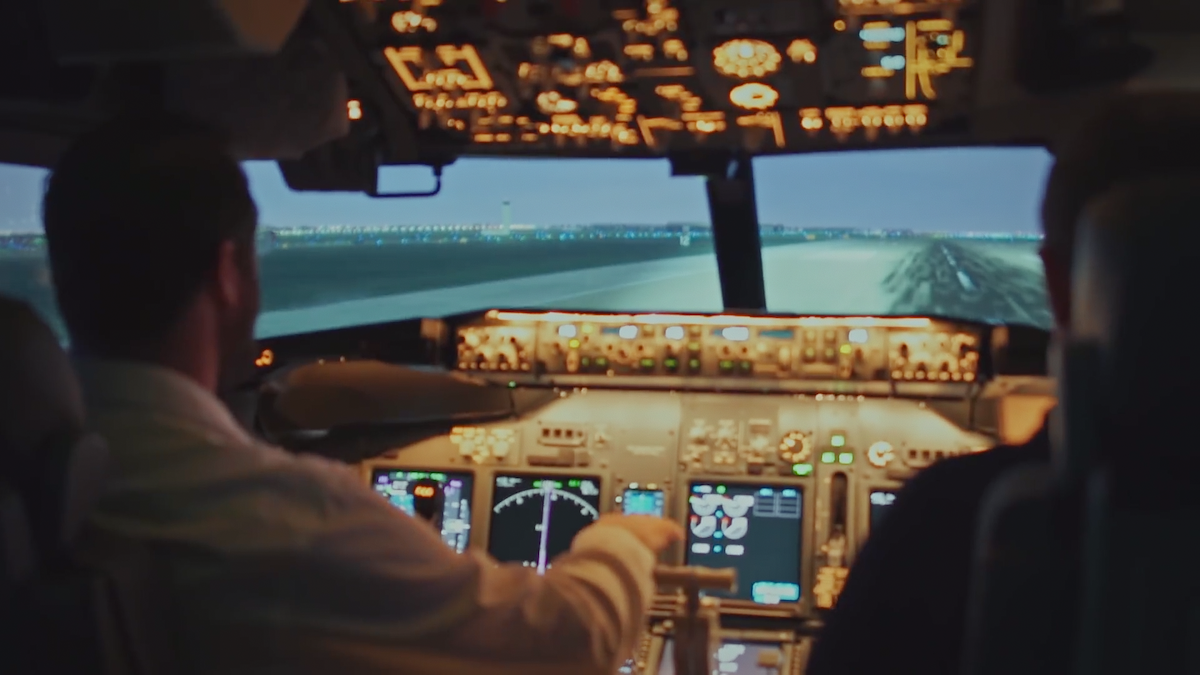
Downfall: The Case Against Boeing speaks only with one journalist, Andy Pasztor, from the Wall Street Journal, which made us wonder if the film has some sort of affiliation with the newspaper. Some surface research shows that it does not. However, in the press notes, director Rory Kennedy explains that to bring the story together, it was told through a “traditional crime story structure” — three acts delineating the crime, the investigation, and the “big reveal.”
But the “big reveal” that Boeing knew the truth all along isn’t a reveal at all. In fact, the “crime” isn’t the crashes but the fact that Boeing covered up the truth about them.
Perhaps a more captivating “true crime” story about Boeing’s downfall would have been an investigation into the Boeing executives. Why did they let more planes in the air when they knew hundreds more people could die? Who continued pushing safety concerns under the rug?
But that’s not the story that’s told.
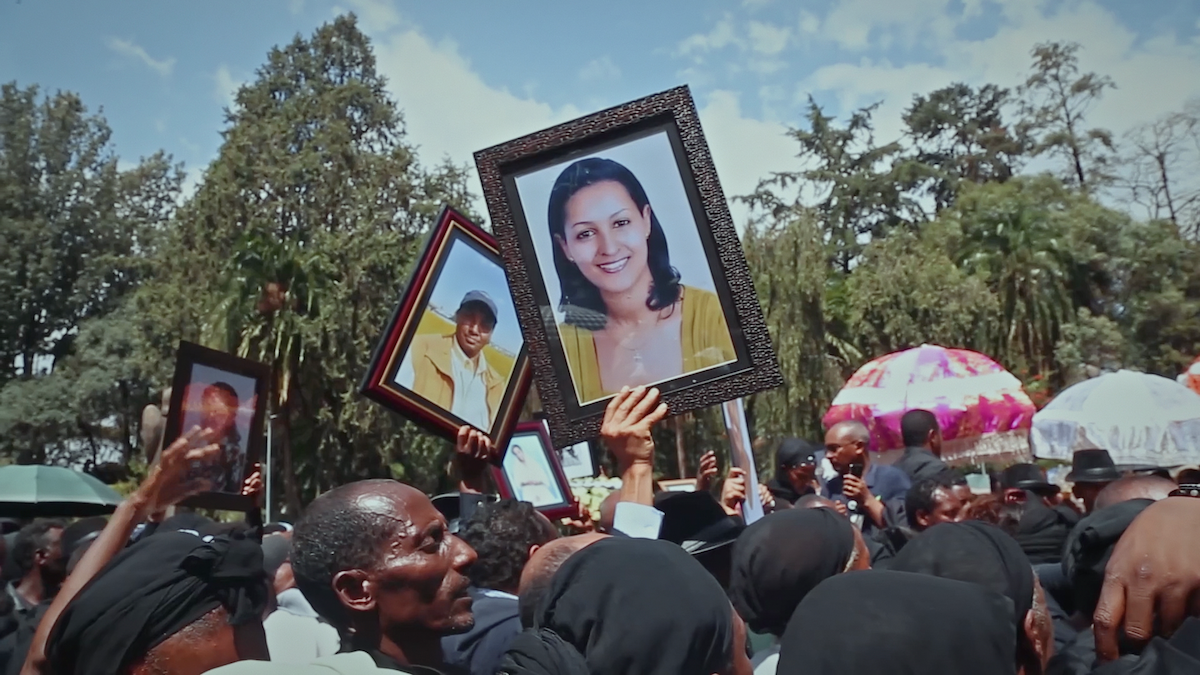
Where Downfall: The Case Against Boeing stands apart is in reminding us that the human lives lost in these crashes do have an enemy. Their enemy is the CEO of Boeing at the time, Dennis Muilenberg, as well as the Boeing shareholders, Wall Street, and let’s be honest … capitalism.
But we all know already that capitalism is evil. If anyone were to guess why Boeing let their 737-Max fly after the first crash, the first guess would be because of money … and they’d be right.
If the goal of the documentary is to sink Boeing’s stock once again, we’re sure it will succeed. It explains the intricacies of the MCAS system that failed the pilots, the planes, and the passengers on board. It features exclusive interviews with family members of the deceased and with various airline pilots. We see footage of Captain Sully Sullenberger, the pilot famous for landing a plane in the Hudson River, testifying against Boeing.
The film gives a voice to many of the crash victims who were overlooked in the media’s search for an answer and a culprit. But in doing so, it becomes a hard-to-watch documentary that only exacerbates a fear of flying. It's being marketed as a true-crime piece, but it reveals no new information.
Downfall: The Case Against Boeing premieres on Feb. 18 on Netflix.